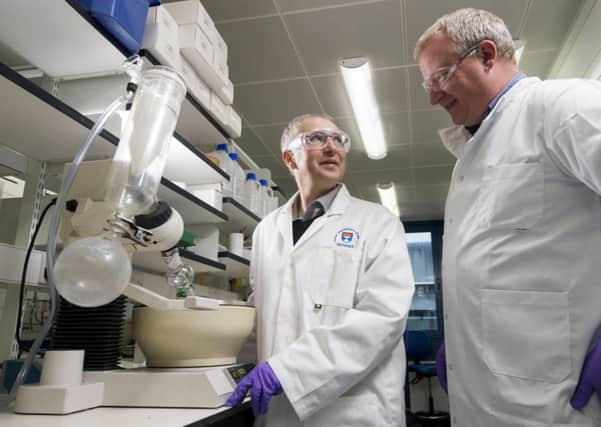Scots scientists close to malaria breakthrough


Researchers at the Drug Discovery Unit at Dundee University believe they have made a significant breakthrough in the search for a new drug to combat a disease responsible for an estimated 627, 000 deaths in 2012 - including 483,000 children, equivalent to almost one death every minute.
A new secret chemical compound, developed by experts at the unit, is to begin preclinical development to produce the drug on a larger scale with a target of moving to vital human clinical trials within the next 18 months.
Advertisement
Hide AdAdvertisement
Hide AdThe move to preclinical development is being backed by the Medicines for Malaria Venture, an international organisation devoted to the development of effective and affordable antimalarial drugs.
Professor Ian Gilbert, Chair of Medicinal Chemistry at Dundee and one of the project leaders, said: “It’s a very exciting milestone in developing a potential new treatment for malaria.
“This compound has impressive antimalarial properties. It has potential for a single dose treatment of malaria. It also has the possibility to protect people from getting malaria in the first place and in stopping malaria being spread from infected people to others.”
He said: “There is no single dose treatment available at the moment. Drug resistance is a big problem in malaria and developing new compounds is important. There are drugs that treat malaria but we need other drugs to complement the drugs that are already in existence.”
Prof Gilbert stressed: “There is still a long way to go and obviously not all compounds make it through the trial process. But it’s at a very exciting stage.”
Dr Kevin Read, the co-project leader, said, “We are very excited by this compound which belongs to a different chemical class to current antimalarial drugs. This compound will now undergo scale-up and further safety testing with a view to it entering human clinical trials within the next 18 months.”
The DDU team has been working on the development of the new compound since 2010.
The project began when one of the DDU collections of compounds was screened against the parasite that causes malaria, leading to the development of the new chemical compound.
Advertisement
Hide AdAdvertisement
Hide AdDr Paul Willis, one of MMV’s Drug Discovery Project Directors, said: “Identifying a compound like this is no small feat. It’s a great achievement, particularly given the exciting properties of the compound, which give it potential for use in the treatment, prevention and transmission-blocking of malaria.”
SEE ALSO